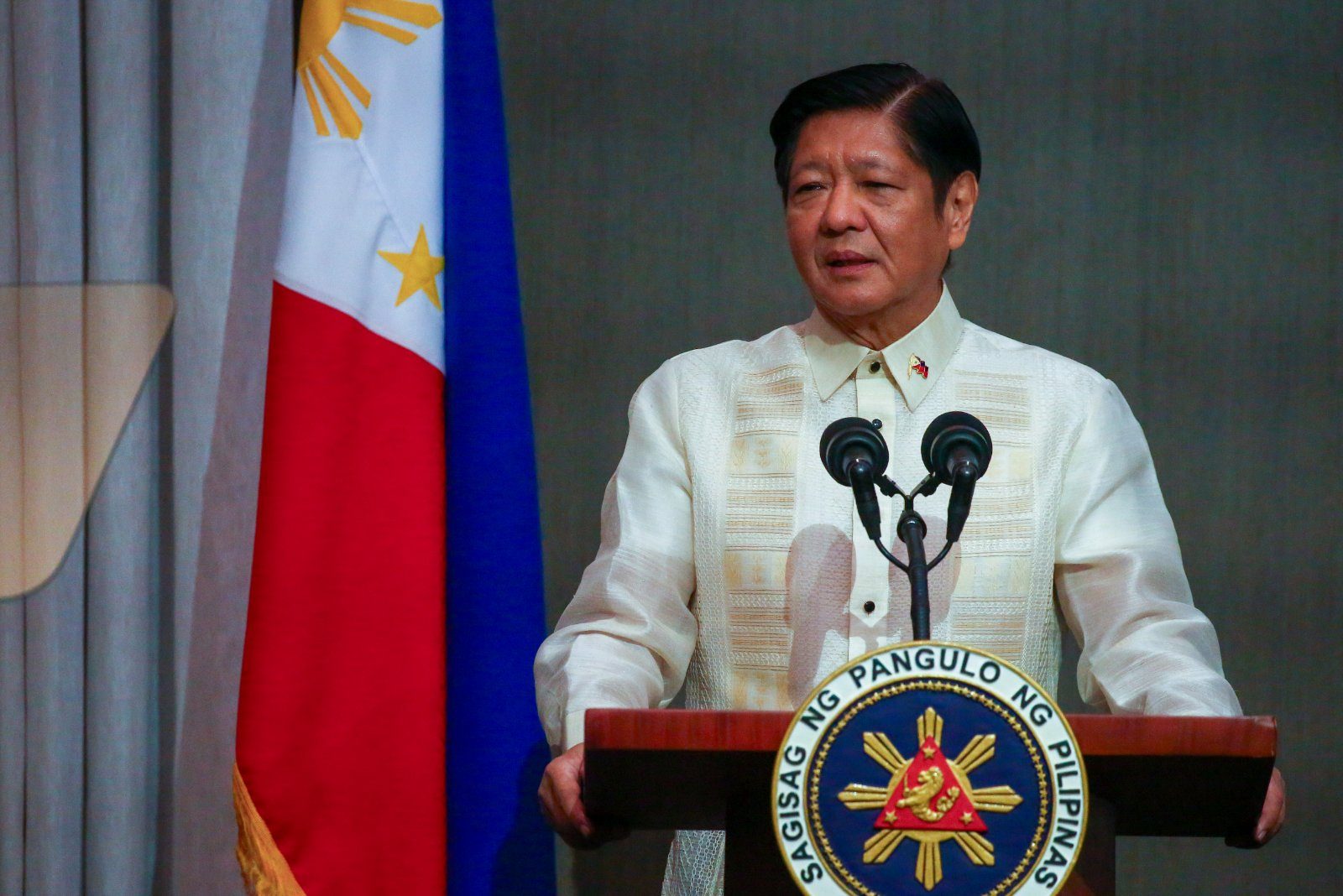SUMMARY
This is AI generated summarization, which may have errors. For context, always refer to the full article.

MELBOURNE, Australia – In an impassioned speech delivered days after describing the Philippines as a country on the frontlines of “threats” in the Indo-Pacific, President Ferdinand Marcos Jr. said the future of the region should not be “shaped not by one or two, but by many actors.”
“There are those who continue to see regional developments solely from the narrow prism of great power rivalries. There are those who reduce these developments for a regional regression towards outdated Cold War paradigms,” said Marcos in a speech on Monday, March 4, before a crowd gathered by the Lowy Institute at the Victoria State Library.
“The future of this region will be shaped not by one or two, but by many actors, and they will each demand that their voices be heard, individually and collectively, as indeed they should be. Thus, the Philippines begins any conversation regarding great power competition with a strong rejection of any subordination of our distinct national interests and denial of our sovereignty and strategic agency,” he added.
Marcos is in Melbourne to attend the Association of Southeast Asian Nations (ASEAN)-Australia Summit from March 4 to 6, 2024.

Beyond US-China rivalry
That Marcos explicitly rejected the framing of regional security only through the lens of US and China’s superpower competition is nothing new. Speaking at the September 2023 ASEAN Summit in Indonesia, Marcos said the Philippines rejected “misleading narratives that frame the disputes in the South China Sea solely through the lens of strategic competition between two powerful countries.”
He doubled down on that idea months later in Melbourne.
“We, in the Indo-Pacific, must ensure that great powers do not treat the world as an arena for their competition. The pursuit of the great powers’ respective strategic goals must never come at the expense of the interests of smaller states, nor of regional and international peace,” said the President, in a speech almost interrupted by a short coughing fit.
The Indo-Pacific’s security and stability has been a major topic of discussions in Melbourne, as Australia tries to solidify its position as an integral partner to ASEAN.
The region is a flashpoint of geopolitical tensions in the great Indo-Pacific, with the Philippines squarely in the middle. There’s tensions in the West Philippine Sea, or parts of the South China Sea where the Philippines has sovereign rights. There’s also the issue of Taiwan, and China’s insistence of reunification of the democratically-run island.
The US-China rivalry, said Marcos, is not the biggest problem humanity faces, after all.
“We are also confronted with uncertainties posed by transformative technologies and the existential threat of climate change, even as persistent inequities and inequalities within and among our nations remain unresolved, he said.
Push back against Beijing
The Philippines has seen a dramatic shift in foreign policy from the previous Rodrigo Duetrte administration to the current one led by Marcos. Under Duterte, Manila seemed to turn away from its treaty-ally Washington, while inching closer to Beijing.
The complete opposite is happening under Marcos’ watch. Ties with the US have warmed, particularly in the arena of security and defense. His administration, meanwhile, has made it a policy to “expose” China’s aggressive actions in the West Philippine Sea through its “transparency initiative.”
“Our independent foreign policy compels us to cooperate with [China] on matters where our interests align, to respectfully disagree on areas where our views differ, and to push back when our sworn principles, such as our sovereignty, sovereign rights, and our jurisdiction in the West Philippine Sea — are questioned or ignored,” said Marcos in a short Q&A after the speech
Australia and the Philippines are both middle powers that are treaty-allies of the US. Australia is also the only other country, aside from the US, that the Philippines has a Visiting Forces Agreement with.
“We acknowledge the undeniable importance of the People’s Republic of China and the United States of America to the security situation and the economic evolution of this region and of the world. We must deal with both of them constructively,” said Marcos.
Australia and the US are just two of several countries that have made explicit and public their support of the Philippine position on the West Philippine Sea, including the recognition of a 2016 Arbitral Award that deemed as invalid China’s sweeping claim of the South China Sea. – Rappler.com
Add a comment
How does this make you feel?


![[ANALYSIS] How one company boosts farmer productivity inside the farm gate](https://www.rappler.com/tachyon/2024/06/bioprime-farmgate-farmer-productivity-boost.jpg?resize=257%2C257&crop=465px%2C0px%2C1080px%2C1080px)

![[In This Economy] Is the Philippines quietly getting richer?](https://www.rappler.com/tachyon/2024/04/20240426-Philippines-quietly-getting-richer.jpg?resize=257%2C257&crop=194px%2C0px%2C720px%2C720px)















There are no comments yet. Add your comment to start the conversation.